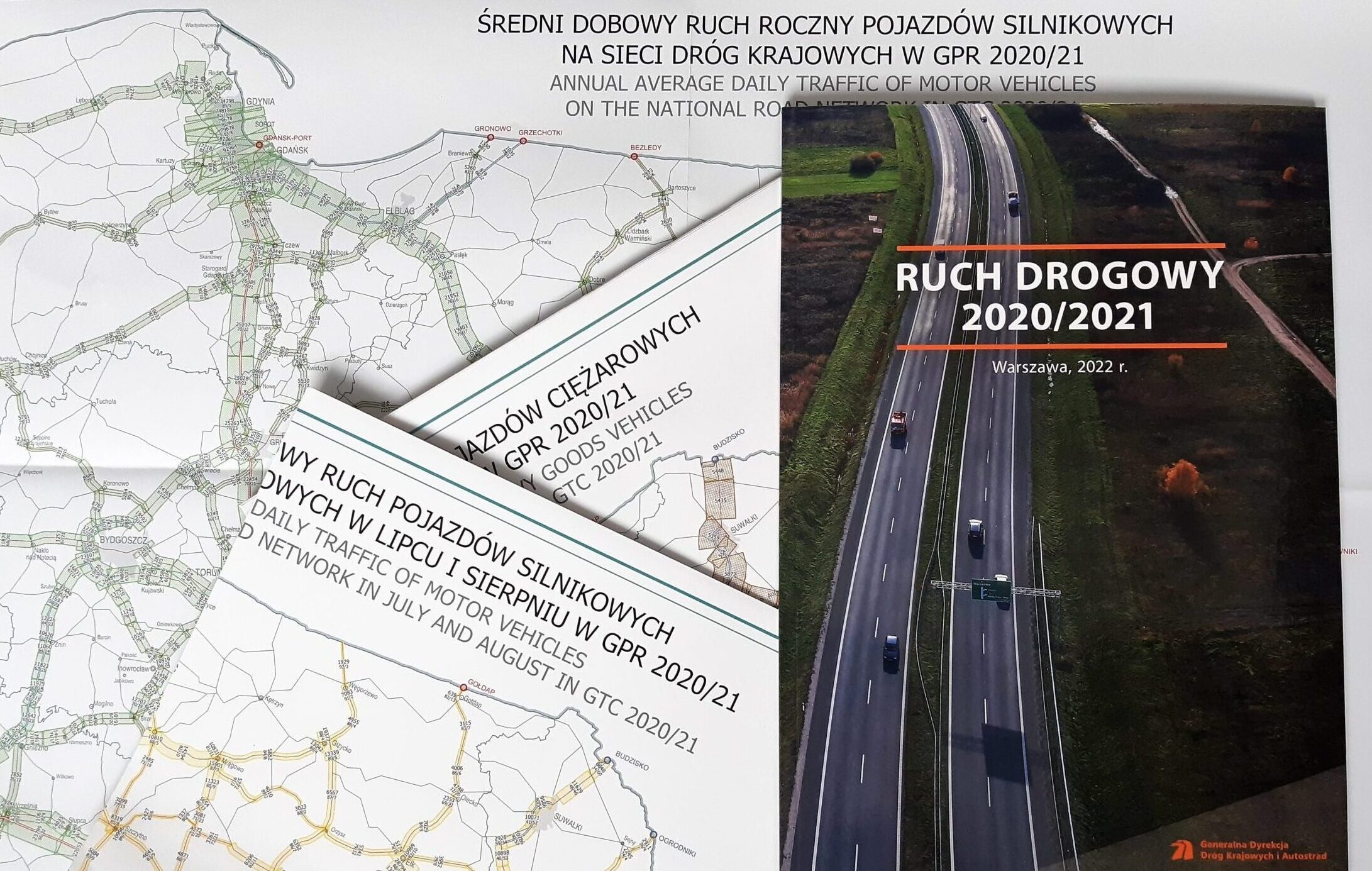Just six months ago, we were all wondering when the COVID-19 Pandemic would allow a return to the “new” normal? After two years of uncertainty and dynamic changes in the mobility of people and the transportation of goods, we were preparing for the spring of 2022 to bring new perspectives and challenges to transportation infrastructure managers. The evolutions in transportation behaviour that we observed during Pandemic were further accelerated at the beginning of 2022 by the war that erupted in Ukraine. The sudden turns affecting our lifestyles are creating new opportunities, while at the same time bringing new problems for transportation infrastructure at all levels. These changes are a multi-faceted process that requires new decisions and modifications to strategies, investment and maintenance plans.
Is it possible to respond to such rapid and frequent changes, and what about considering different scenarios when preparing for the unknown? How can managers safeguard their decisions? How can risks be effectively managed?
Together with our clients in ongoing projects, we wonder how to collect, process and analyze the data that, their organization has, and where to look for the information they need? It is at such moments that the knowledge found in the data is invaluable. It is through it that our clients have access to arguments for their superiors and the public.
In recent months, we have had many opportunities to speak with road builders, infrastructure owners, infrastructure managers and operators, providing solutions and knowledge that we have accumulated in our organization over the past 30 years. Attending numerous meetings, giving lectures at industry forums on infrastructure management, we can’t always tell you about all the issues that consume and engage us. Therefore, in this collective and brief form, we would like to summarize the last few months that we have put so much of our energy into:
We are conducting traffic analysis on a nationwide scale
We are finishing the huge undertaking of supervising the General Traffic Survey 2020/2021 (GPR 2020/21) on the national and provincial road network. We were responsible for archiving, verifying, processing and analysing data from measurements conducted at nearly 5,000 measurement points across Poland, within strict deadlines from January 2020 to May 2021. It was also our responsibility to ensure that the measurements were properly planned and supervised by 47 companies selected in tenders. For this purpose, we developed our own methods of working with data and IT tools used by all participants in the general measurement. In May 2022, on behalf of the principal, the General Directorate for National Roads and Highways (GDDKiA), we published a summary report of the 2020/21 GPR for more than 190 institutions at home and abroad. General surveys are the primary source of traffic information. Their results are essential in the design, planning, maintenance and management of the road network, as well as in the analysis of its impact on the environment and traffic safety. On the basis of the results of traffic measurements, decisions are made on the construction of new roads (including their cross-section, pavement construction, geometry and type of intersections, etc.) and economic indicators are determined that determine whether or not to implement the investment.
Continuing our long-standing cooperation with the General Directorate for National Roads and Motorways (GDDKiA) in the field of archiving and processing data from continuous traffic measurement stations (SCPR), we are implementing a two-year project covering with its framework the data from 2021 and 2022. At the moment, SCPR is 238 active stations located along national roads throughout Poland performing continuous 24-hour traffic measurement every day, all year round. The HC’s task is to archive the data obtained from these devices, verify, process and analyze them. The scale of the task can best be illustrated by the numbers: the annual phase of the SCPR project alone is nearly 100 GB of raw and processed data, analysis and reports, collected in more than 80 thousand files.
We identify damage and assess the condition of roads in Poland and Germany
- We used our ASPEN system for pavement condition survey by assessing the condition of the network in terms of safety and driving comfort when covering a cubic project in Poland on behalf of a construction and design company. ASPEN also proved itself on district roads in Zawiercie and Braniewo. A wider audience had the opportunity to try out ASPEN in person during a field game at the 1st Public Roads Forum in Jastrzebia Gora. Participants, forming mini road boards, took measurements on electric scooters and answered questions about the condition of the pavement along the game route.
- We have been a Consultant, supporting the Lower Silesian Road and Railway Service in Wroclaw and the Voivodeship Road Administration in Olsztyn in the implementation of pavement survey in accordance with the Pavement Condition Survey Guidelines (WDSN) by preparing maintenance plans based on the 2020/2021 survey results.
- We have carried out numerous survey projects in Poland and Germany, where we have completed tasks related to the identification of surface features of both asphalt and concrete road surfaces using Polish or German regulations and guidelines, among others: WDSN, SOSN, ZEB.
We have implemented new solutions to support managers
We are creating a completely new quality in Poland in the management of rail infrastructure by implementing the INFRATRAM system for managing the maintenance of the track network at Warsaw Trams, which we talked about at the 4th Scientific and Technical Conference INFRASZYN 2022 and during the meeting of the Track Committee of the Chamber of Commerce of Urban Transport IGKM . You can read more about the system in our realizations >>.
We have completed the ASPEN2 research project, which we have been developing for the past two years thanks to the co-financing of the European Space Agency, which allowed us to enrich our offer with:
- modern survey of the condition of road surfaces, streets, sidewalks and bicycle paths
- assessment of the condition of the pavement and comfort of movement, together with engineering expertise
- making the results available online in the integrated OnKo3 system.
We have supplemented our Heller Group product portfolio with the “HelloMobile” mobile application for recording road incidents and objects. The app, which is available on Android and Apple devices as well as desktop computers, allows maintenance plans to be updated remotely with the changing state of the network.
We are studying traffic safety
We are implementing two prestigious projects in the field of traffic safety. The first is a nationwide monitoring of traffic participant behavior commissioned by the Ministry of Infrastructure. We have already taken speed measurements and now, using our mobile application, we will conduct behavioral observations, which we will subject to detailed analysis. The second is an EU research project carried out for the European Commission by 18 EU member states – Baseline. In Poland, it is being carried out by the Institute of Motor Transport (ITS), which we are assisting in defining key BRD performance indicators. These indicators include speeding, seatbelt use, cell phone use while driving, helmet use, drunk driving, vehicle safety, road infrastructure safety and post-accident assistance.
We are joining in education and talking to road engineers
We have implemented two dedicated training courses for road managers in Poland: “Reference System Management” and “Effective Road Safety Management Process.” After an initial interview, we prepare individual offers targeted to the organization and the specifics of its operation. You can read more about our workshops and trainings on the INFRAMA Academy website.
This spring we participated in important events for road engineers: VIII International Conference Silesian Road Forum in Wisla where Polish and German road engineers have been exchanging experience for years, II Road and Bridge Maintenance Forum organized by the Polish Road Congress during the New Infrastructure Fair in Kielce ,I Public Road Forum in Jastrzebia Gora for local government roads, and IX Krakow BRD Days where together with the Institute of Motor Transport (ITS) we presented the safety analysis we made for the expansion of the speed camera system in Poland.
We support the sustainable development of bicycle transportation
We made models of the bicycle road network in Hesse, where we additionally determined the width, surface type and road type, so that the city could remotely manage the data. In the Warmian-Masurian Voivodeship, we are supporting the Provincial Road Administration in Olsztyn in expanding the bicycle network and building a management system for bicycle roads.
We have assessed the damage occurring on bicycle paths on concrete surfaces as part of a research project, on sidewalks and areas next to roadways (including curbs) in Lower Saxony and North Rhine-Westphalia.
We look after the interests and legal security of our customers
We used our Anonymazing tool to remove sensitive data from more than 10,000,000 photos. Image anonymization has become an optional service available in our portfolio, both for road photo-registrations made with the ASPEN system and by external contractors.

